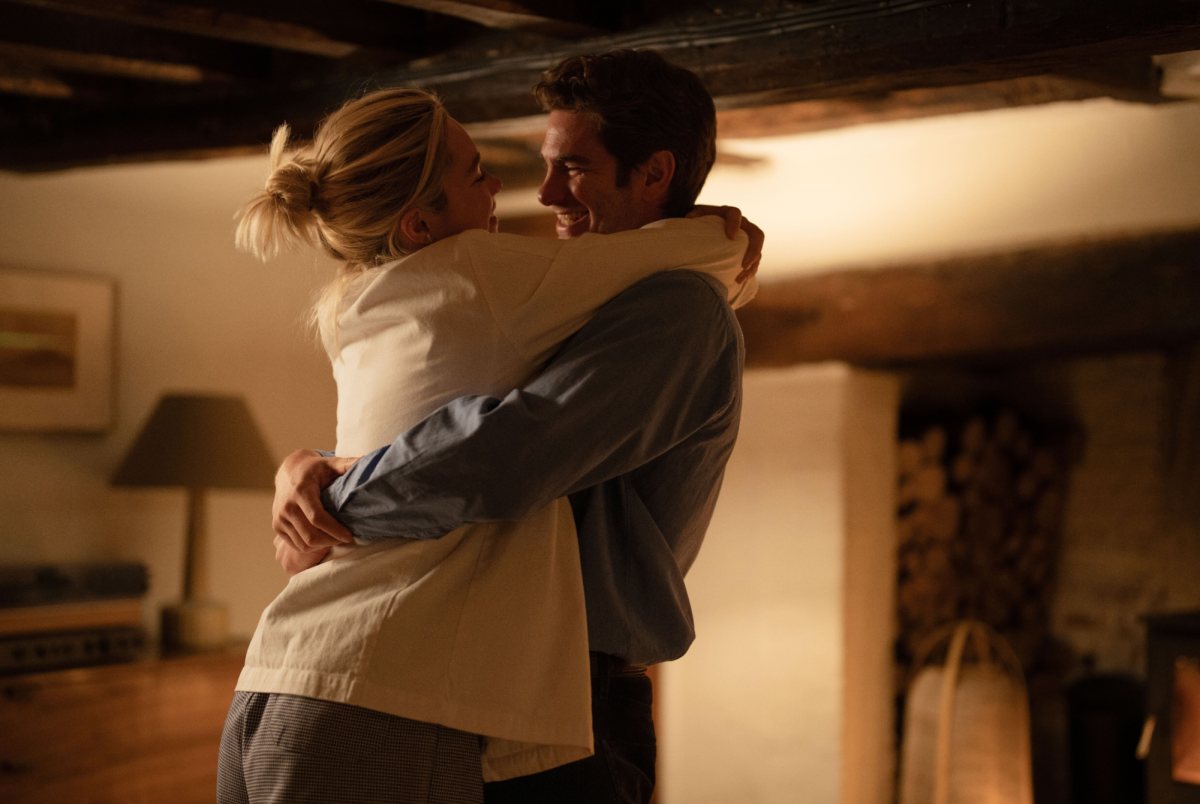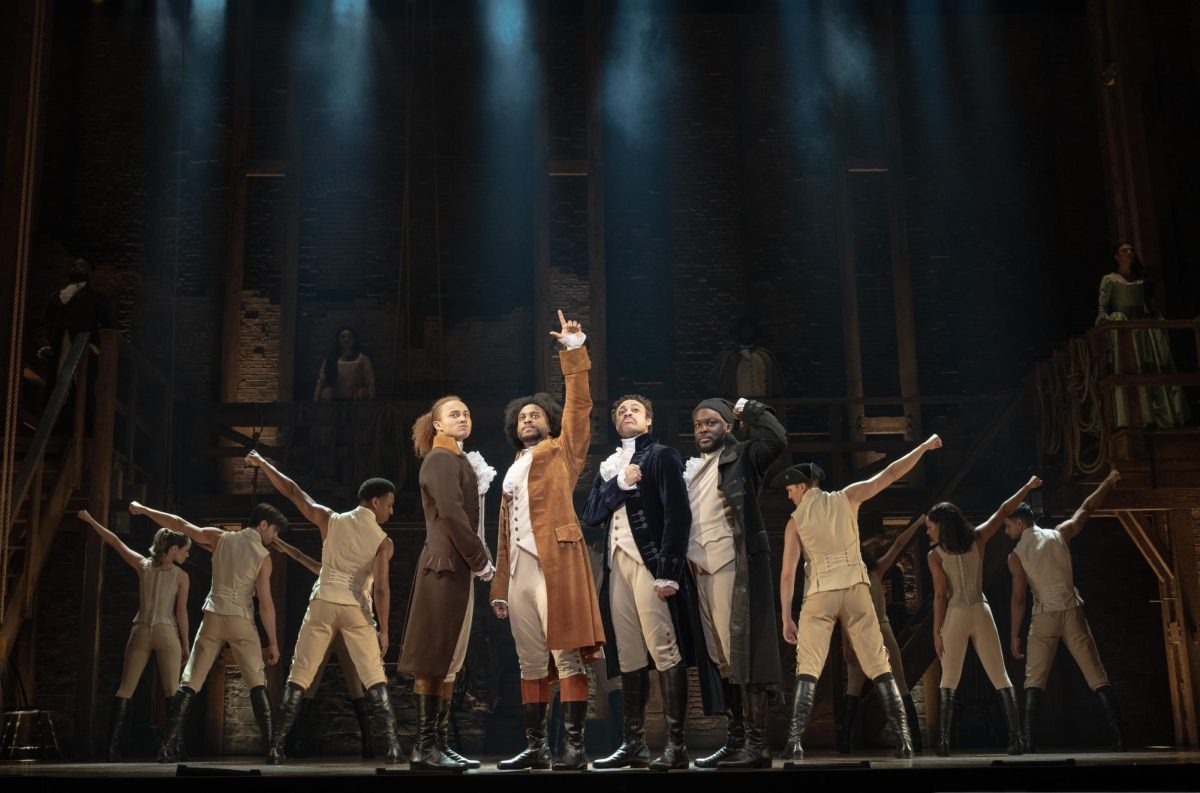Audiences no longer need to wonder what the two most attractive and charming actors of our generation look like falling in love, starting a family and enduring tragedy. Studio A24’s “We Live in Time”, directed by John Crowley, creates a new standard for cinematic intimacy. What could’ve turned into an overly melodramatic “Fault in our Stars”-esque romance became a beautiful and moving celebration of life, love and time.
“We Live in Time” follows, in a sporadic, nonlinear fashion, the relationship between Almut (Florence Pugh) and Tobias (Andrew Garfield), from their unconventional meet-cute to building a life together and ultimately tragedy from illness. A scramble of the highs and lows of their relationship, the non-chronological progression shows the love between Tobias and Almut unfold without the constraint of time, while simultaneously reaffirming the fickle nature of life.
Tobias and Almut possess a love that feels commonplace, yet sacred, blurring the line between romanticism and realism. Almut, a talented and beautiful award-winning chef, meets Tobias, a divorcé working at a corporate cereal company. Pugh and Garfield were made to play the characters, the pair seamlessly embodies the quirky and lovably flawed couple while complementing the script’s intentional awkwardness and dry British humor.
To comment on the performances of Garfield and Pugh seems inadequate, in that the level of vulnerability felt like more than just a performance. Instead of coming off as an imitation or reenactment, the conversations and intimate moments seem to happen in real time. Garfield established himself confidently in terms of talent and believability alongside Pugh, who has proved her breadth for emotionally intense acting time and time again.
The deglamorization of romance in “We Live in Time” makes it all the more appealing. Several scenes showcase the perfect blend of unique imagery, comedic timing and meaningful commentary. Moments such as Almut running over Tobias with her car, giving birth in a gas station bathroom and Tobias eating chocolate-covered oranges in a hotel bathtub leave audiences unsure whether the tears on their cheeks flow from laughter or sorrow.
The film exposes the true nature of “happily ever after,” as passion and connection intermingle with disagreements and heartbreak. The most romantic plot points occur in common and undesirable settings, like a highway, hospital or gas station. “We Live in Time” seems to think that true beauty and romance are found not in picture perfection, but in the raw, average and sometimes ugly reality of life.
The ending will leave the viewer to work through the five stages of grief until their acceptance of life not as a cycle of seasons to rush through until arrival at perfection, but as a series of triumphs and tragedies to be savored in every possible way.
Despite the believability of a film, romantic depictions of any kind reinforce ideals unachievable for most. But even with its subtle indulgence of soulmate fantasies, “We Live in Time” still stands out with a level of intimacy and relatability that other popular romance films have yet to tap into.
4½ chocolate-covered oranges out of 5














